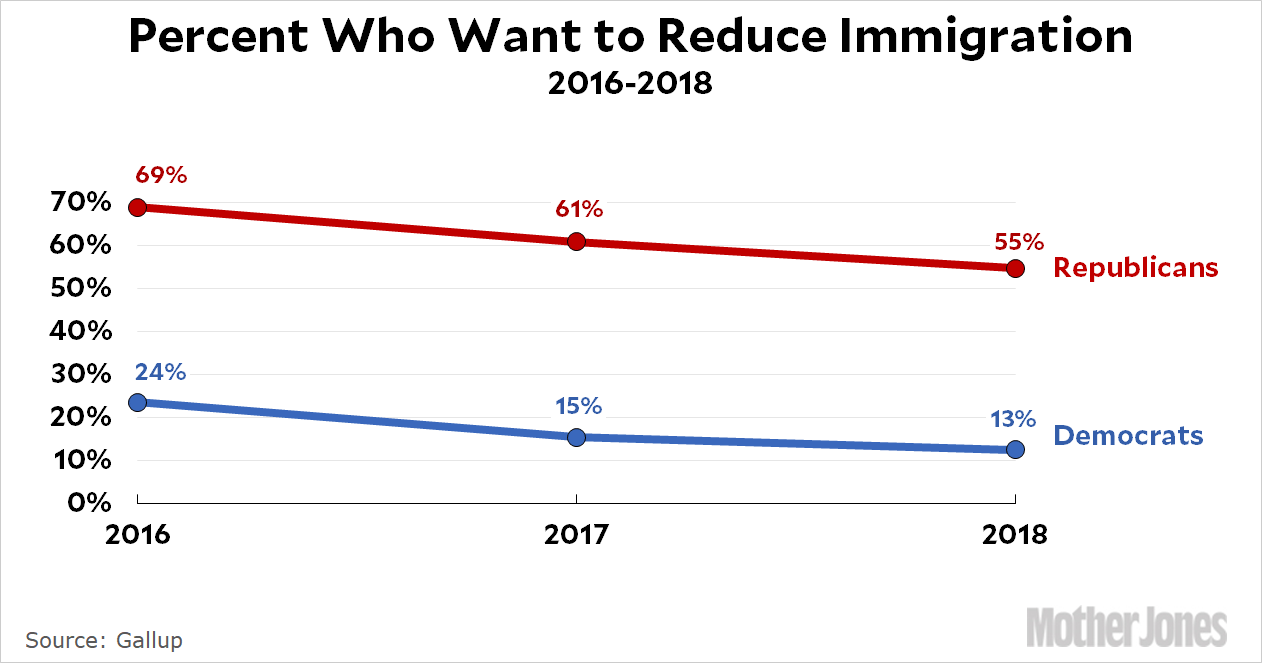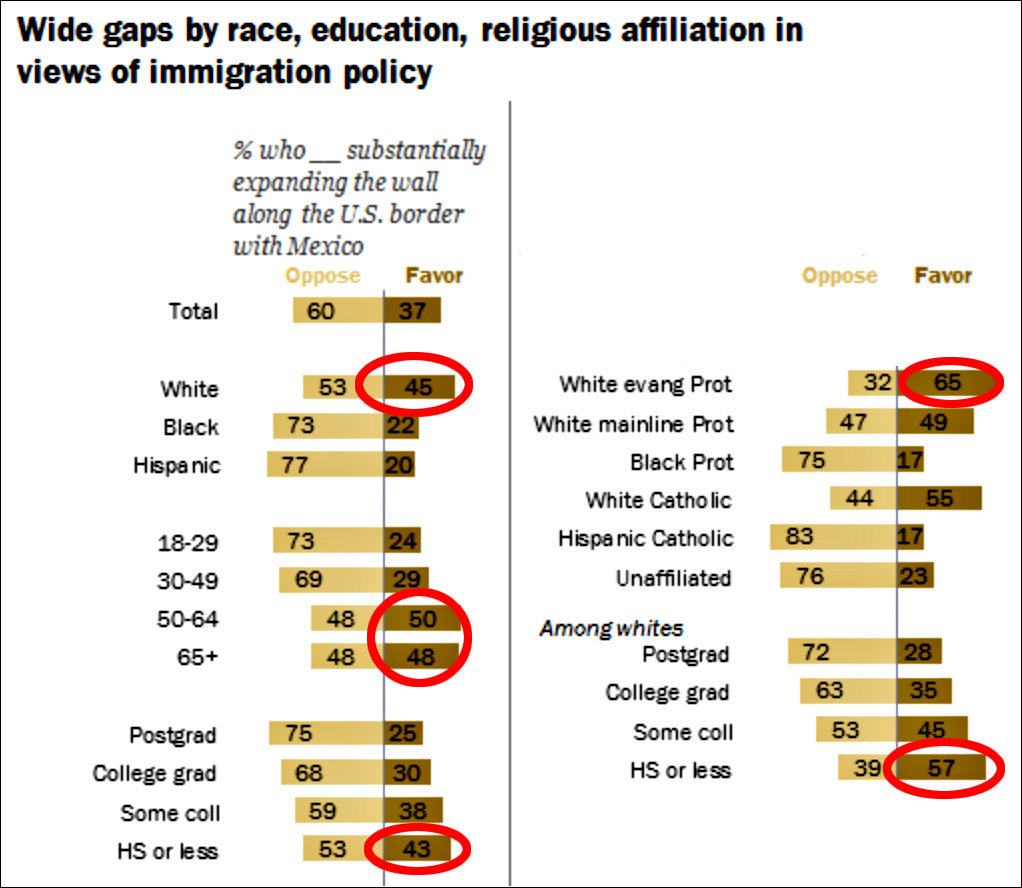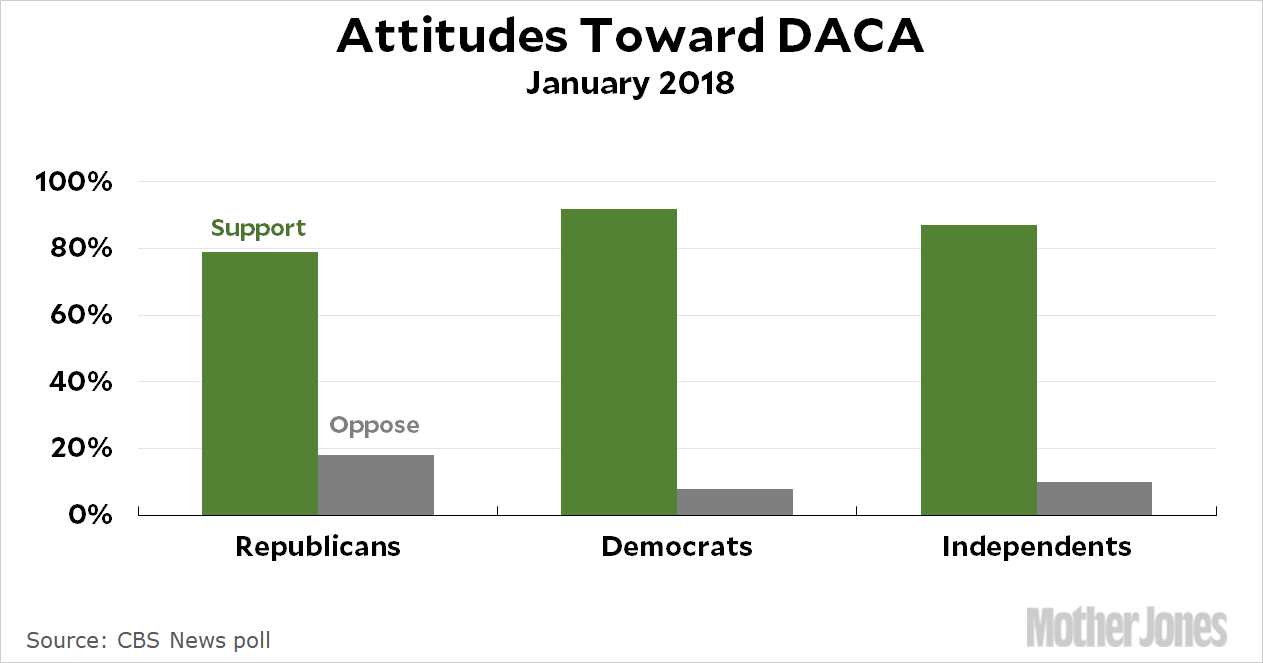How should Democrats respond to President Trump’s immigration proposal? Before I answer, let’s take a look at what the public thinks of immigration. First up, here is Gallup on support for cutting immigration levels:

Second, here is Pew on who supports building a border wall:

Third, here is CBS News on views about DACA:

Let’s summarize:
- Even among Republicans, the desire to reduce immigration has gone steadily down over the past two years. This is despite Donald Trump’s best efforts to weaponize the subject.
- Most people oppose a border wall. Support comes mainly from the white, the old, the evangelical, and the uneducated. I know how much Republicans hate it when this is pointed out, but these are basically the most racially resentful segments of the population.
- Everyone supports DACA. Even Republicans support it overwhelmingly, 79 percent to 18 percent.
I’m not personally wedded to our current levels of legal immigration. The numbers are fairly arbitrary, after all, and if a modest reduction in green card quotas—or a reallocation of some kind—is what it takes to buy peace, I’d probably support it. At the same time, what incentive do Democrats have to make any kind of bargain at all? Even among Republicans, nearly half are satisfied with current immigration levels. The wall is basically a nativist wet dream. And support for Dreamers is overwhelming across the board.
Their best strategy is probably to set some reasonable terms publicly and then walk away from the table. The political price would be minimal, or maybe even positive. And what happens next? If Republicans allow DACA to expire and Donald Trump starts deporting Dreamers, it will be a nightmare. Republican will be desperate for a deal at that point. They’re talking tough right now, but that’s mostly just cover for a widespread fear of what happens to them if Dreamers start getting shipped off to Mexico on their watch.
Here’s the problem for Democrats: taking this position will almost certainly cause some human misery. Republicans won’t fold easily, and in the meantime Dreamers will indeed get deported to a country they’ve never lived in. But liberals don’t like human misery, and Republicans hold them hostage to this sense of basic decency all the time. It happened with CHIP. It happened with the shutdown. And it’s happening now with DACA. Democrats fold because they actually care about the pain that their actions might cause.
Republicans are well aware of this, so they perversely have an incentive to deliberately provoke human misery as a bargaining tool against Democrats. This is the kind of tough-guy politics that makes me ill, but maybe it’s time for Democrats to stop providing this incentive.

















